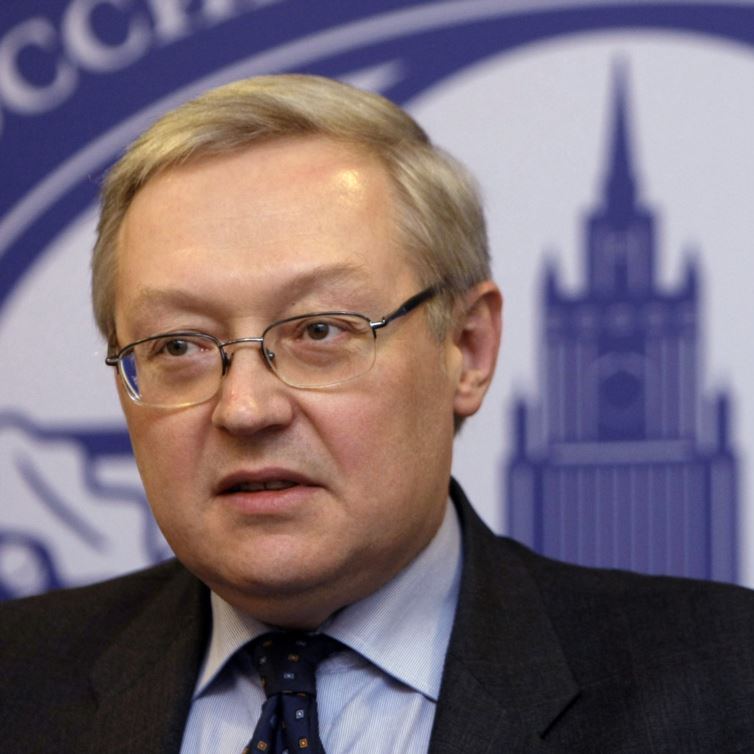While in Moscow a few weeks ago, I was part of a group of U.S. scholars that met with Sergei Ryabkov, Russia’s Deputy Foreign Minister and BRICS sherpa, who has particular expertise in arms control and European cooperation. The meeting with Ryabkov was in many ways the complete antithesis of the Russian speeches at MCIS, which took place the next day. He said that Russia did not want to remove anything from the bilateral relationship with the United States, expressed concern that the push for sanctions in the U.S. had taken on its own dynamics while perceptions of the other on both sides were only consolidating, and declared Russia’s intention to maintain all possible channels of dialog.
He mentioned three possible areas for bilateral cooperation, including Syria’s chemical disarmament, limits on the Iranian nuclear program, and management of climate change. In particular, he highlighted the danger of nuclear proliferation, especially in the Middle East, depending on how the Iranian negotiations turn out. U.S. and Russian interests on this issue are very close, so prospects for cooperation are good. However, given the current state of relations, Russia will not seek to develop a new agenda for cooperation with the U.S. until after the dust settles on the current crisis — 12-18 months. Until then, Russian leaders will simply try to manage the situation to limit the damage to the relationship. At the same time, there is no plan to revise Russia’s fundamental foreign policy approach toward the U.S.
He said that there is no need for Moscow to backpedal on its Ukraine policy. Russian leaders truly believe in their explanation for why the crisis in Ukraine occurred and subsequent developments in the crisis will depend on further events in Ukraine. He wanted to make sure that we got the message that Russia has no ambition to further deteriorate the situation in Ukraine. He noted that Ukrainian plans for dialog were a step in the right direction. Russia would like to ensure that there is a new division of powers in Ukraine and to secure the status of the Russian language. He stated that a quest for establishing Novorossiya, either as an independent state or as part of Russia was out of the question and was not being considered by the Russian leadership in any way. He said that there was no risk of further deterioration in Ukraine and that therefore there was no basis for sectoral Western sanctions on Russia. At the same time, Ryabkov ruled out the possibility of any kind of negotiation with Ukraine over Crimea, since Russia considers the issue closed. Though he did not exclude the possibility of compensation of individuals or businesses for lost property, he said there would be no settlement on a government level.
The public tends to perceive the current state of relations with the U.S. as a natural outcome of past events and therefore unavoidable. Many people don’t care about or about how American political elites think of Russia. There’s no obvious vision on how build a different kind of relationship. As for the annexation of Crimea, most people see it through the prism of the collapse of the Soviet Union in 1991 and believe that one part of that historical injustice has now been remedied. References to Kosovo among some Russian commentators are to some extent artificial. The trope of “if others can do it, why can’t we?” only emerged after several cases of Western intervention. But at the same time, each case is unique, one can’t draw parallels even with the intervention in South Ossetia in 2008.
Given this divergence in views between Russians and Americans, it would be better to focus on less politically loaded issues. Russia needs to try to communicate in a more focused way with those who work Russia issues in Washington. John Kerry and Sergei Lavrov have been speaking almost daily on the crisis. This has helped a more reasonable direction to emerge, including the involvement of the OSCE and international observers, as well as the withdrawal of Russian troops in late May. He believed that the situation in late May was much better in a political sense than it had been 2-3 weeks earlier.
I asked a question about the possibility of U.S.-Russian cooperation on the Arctic once the current crisis is less acute. Ryabkov noted that contacts are still being maintained on practical questions, including monitoring fisheries limitation agreements and channels on environmental issues such as oil spill cleanup and protection of polar bears. Work in the Arctic Council is continuing, with a gradual consolidation of approaches by the Arctic littoral states. While competing claims to sectors on the continental shelf may produce some difficult motives, all sides have been trying to keep the dialog open and to keep it low key.
Another question was asked about other areas of cooperation. Ryabkov highlighted the importance of maintaining cooperative programs in peaceful nuclear energy. Although the U.S. canceled its participation in a June meeting in Russia on how to use spent fuel in energy production, the meeting was simply shifted to France. He mentioned cooperation with GE in this field and said that it was unfortunate that the U.S. government was influencing U.S. businesses against engaging with Russian economic actors.











